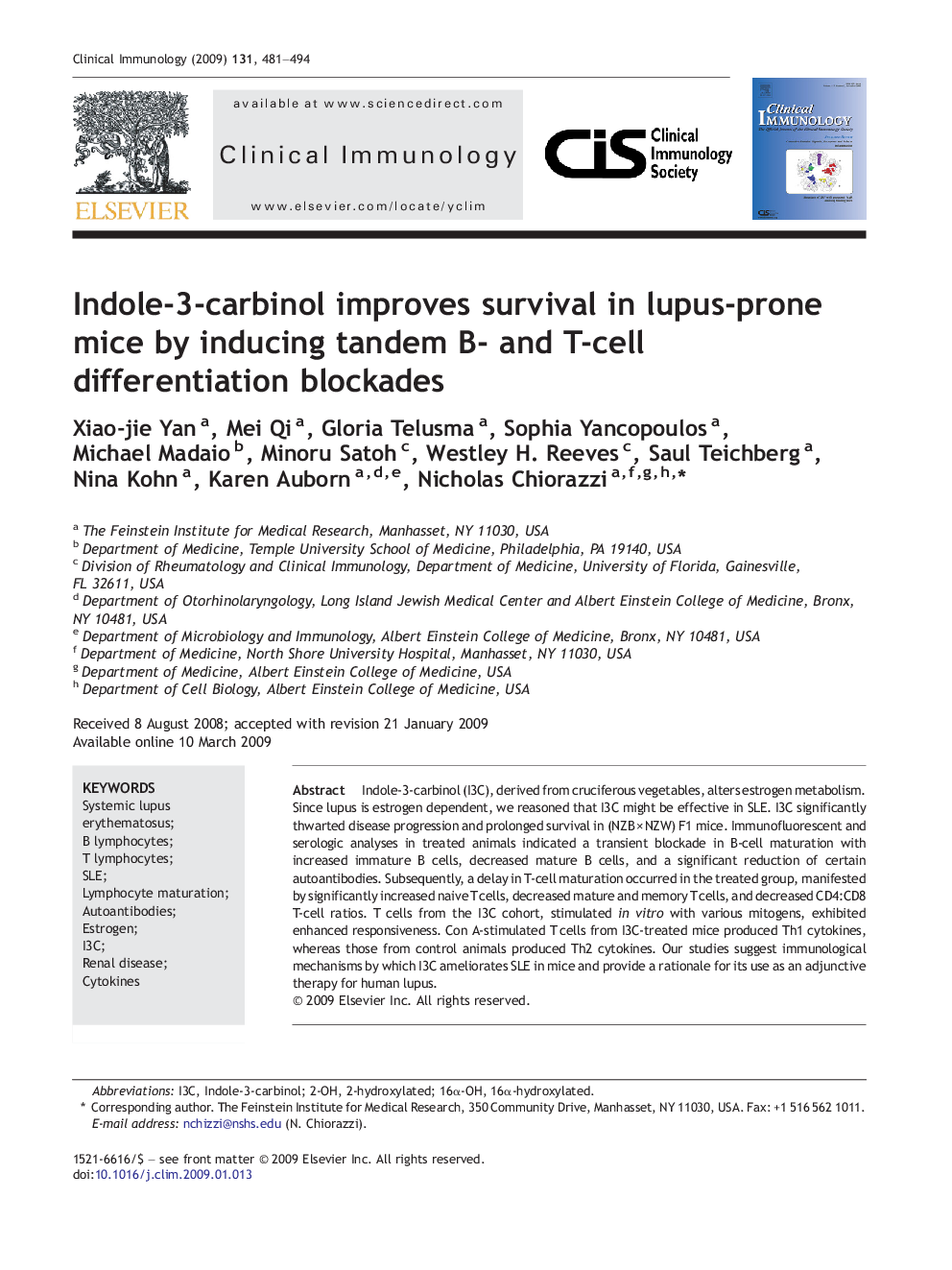| Article ID | Journal | Published Year | Pages | File Type |
|---|---|---|---|---|
| 3257489 | Clinical Immunology | 2009 | 14 Pages |
Indole-3-carbinol (I3C), derived from cruciferous vegetables, alters estrogen metabolism. Since lupus is estrogen dependent, we reasoned that I3C might be effective in SLE. I3C significantly thwarted disease progression and prolonged survival in (NZB × NZW) F1 mice. Immunofluorescent and serologic analyses in treated animals indicated a transient blockade in B-cell maturation with increased immature B cells, decreased mature B cells, and a significant reduction of certain autoantibodies. Subsequently, a delay in T-cell maturation occurred in the treated group, manifested by significantly increased naive T cells, decreased mature and memory T cells, and decreased CD4:CD8 T-cell ratios. T cells from the I3C cohort, stimulated in vitro with various mitogens, exhibited enhanced responsiveness. Con A-stimulated T cells from I3C-treated mice produced Th1 cytokines, whereas those from control animals produced Th2 cytokines. Our studies suggest immunological mechanisms by which I3C ameliorates SLE in mice and provide a rationale for its use as an adjunctive therapy for human lupus.
